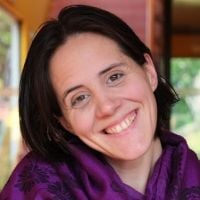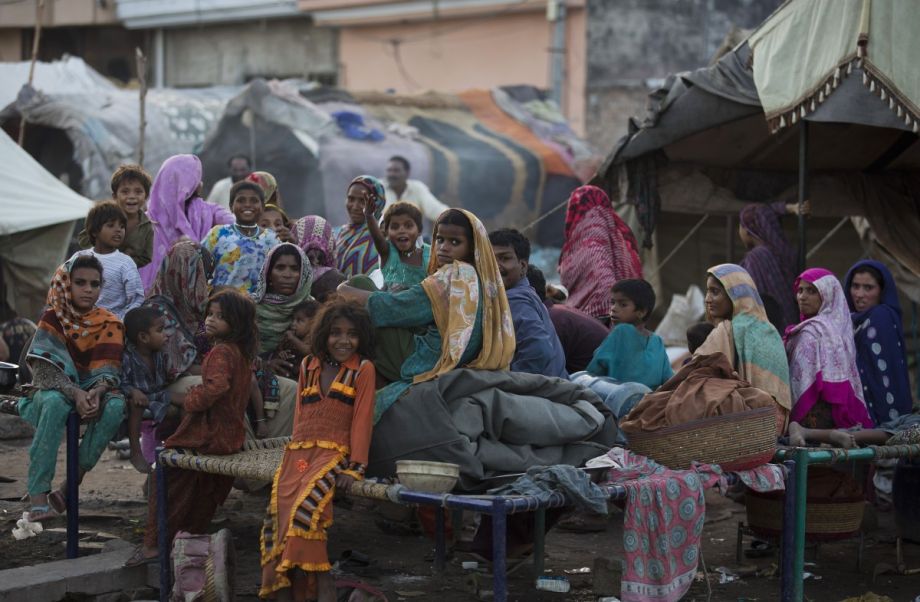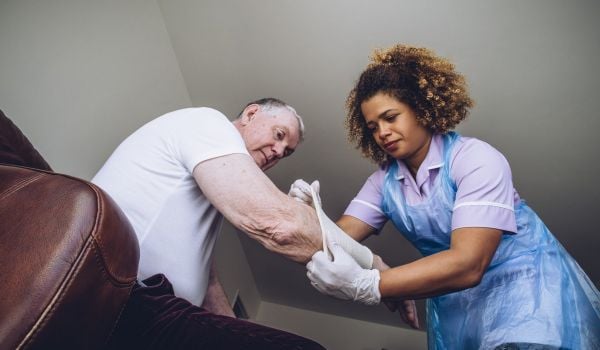For an autistic child, Rawalpindi, Pakistan, is a challenging place to live. The city of 2 million is, according to a Lonely Planet guide, an “adrenaline-pumping hullabaloo.” The jostling crowds and cacophony of sounds, colors and smells in a city on the subcontinent can feel nerve-shredding to anyone. For an autistic child, whose characteristic symptoms often include sound and light hypersensitivity, the sensory overload must be tough to endure.
Help is tough to find: The number of professionals serving autistic children in the city hovers near zero. When a local doctor named Naima Haider realized her son Inam was autistic, for instance, it soon became clear that virtually no medical facilities could offer care. She and other parents formed a support organization called the Autism Resource Center, but it remains an exception. Overwhelmingly, families of autistic children find more stigma than resources.
But a newer category of healthcare work — task-sharing — could provide better professional support. A recent study shows the approach might even help kids with autism in Rawalpindi.
Task-sharing, sometimes called task-shifting, is a healthcare innovation that hands over the tasks of doctors and other highly trained healthcare professionals to lesser-trained medical or paramedical staff. Nurses, social workers, community health workers and even previously treated patients undergo specialized training on how to provide specific types of care, usually for a single health condition. The system relies on highly educated professionals (typically doctors) to train and supervise this junior staff, and to take over care in severe or complex cases.
In a way, task-sharing is a glorification of what already quietly occurs in places where scarcity has compromised access to physicians. These places are many; as of 2011, the World Health Organization estimated a shortfall of 4.3 million healthcare professionals worldwide. The problem heavily affects some 57 countries (mostly in Africa, the Middle East and South Asia).
Formalizing task-sharing became prominent when HIV/AIDS increased demands on sub-Saharan African healthcare systems and has since flourished. Today, task-sharing is used in maternal and child healthcare, including obstetrical surgery in Ethiopia. It’s also employed in tuberculosis treatment, which hinges on providers helping patients adhere to medication regimes, and even in end-of-life care for people in Korail, the largest slum in Dhaka, Bangladesh.
Recently, a group of researchers led by University of Liverpool psychiatrist Atif Rahman mounted an exploration of task-sharing for autism in busy Rawalpindi.
“The original intervention requires a highly specialized speech therapist to deliver [it] in the UK,” Rahman says. “We specialized the intervention so a simple graduate could deliver it.”
The project, referred to as “parent-mediated intervention for autism spectrum disorder in south Asia” (PASS), enrolled 65 children from Rawalpindi and a partner site in Goa, India, and hired university graduates who had no experience delivering mental healthcare. After eight days of training, researchers dispatched them to meet each family in home visits, where they collaborated with parents on improving their child’s speech, eye contact and interaction.
“Training parents to pick up cues from the child and then communicate with their children … is the core intervention,” Rahman says. The method allows the children to learn by mimicking parents (as neuro-typical children do), including learning the social skills that autistic children are less adept at acquiring. It also allows adults to ascertain and meet a child’s needs more fluidly, which can help reduce the emotional distress autistic children often experience.
Despite the complexity of autism, the study posted good results.
“If the training can be made simple enough, you can train people to do the scientifically right thing without necessarily having a great deal of theoretical knowledge about how it works,” says Rahman. “The critical point is the intervention delivery: How well your delivery agent is trained to deliver it, and whether it’s hitting the right spots.”
Though he relied on people with a university-level education for the pilot project in Rawalpindi, Rahman notes that “people who don’t even have a high school education” can often best “graduates who have done years and years [of study] and are of a different social class.” Rahman reasons that workers whose lived experience is closest to the families they serve are better able to intuit the pressures those families face — allowing them to offer relevant advice in more relatable ways.
The study did show a negative effect on one measure, “shared attention,” which involved getting the child to focus on the same topic or object with the parent. Rahman admits this is not ideal, but adds that “the outcomes were measured after a relatively short amount of time.” He suggests that accumulated experience may help task-sharing staff deliver care with more skill.
Rahman acknowledges the task-sharing healthcare approach puts a heavy burden on workers. A program that substitutes for no care at all has a low bar for success, but that doesn’t mean the work is easy.
“These kids were slightly older than they would be in high-income countries. The longer they are without treatment, the more the disability sort of tends to set in, becomes harder,” Rahman says. Task-sharing healthcare workers face unraveling long-standing maladaptions among parents and more severe disability in their children — all with eight days of training, at a far lower wage than a doctor could enjoy.
For all that, Rahman says task-sharing remains the best option in a city so hard to navigate that some people rely on TV doctors for advice. And projects in other places have found that effective healthcare can often come from those closest to the people being served. “So far,” Rahman notes, “we haven’t seen anything to indicate that this is a risk or it’s not a viable strategy for certain conditions.” In Rawalpindi and Goa, in fact, his fellow researchers “are making plans to train more and more non-specialists to scale up interventions.”
The “Health Horizons: Innovation and the Informal Economy” column is made possible with the support of the Rockefeller Foundation.

M. Sophia Newman is a freelance writer and an editor with a substantial background in global health and health research. She wrote Next City's Health Horizons column from 2015 to 2016 and has reported from Bangladesh, India, Nepal, Kenya, Ghana, South Africa, and the United States on a wide range of topics. See more at msophianewman.com.
Follow M. Sophia .(JavaScript must be enabled to view this email address)

















